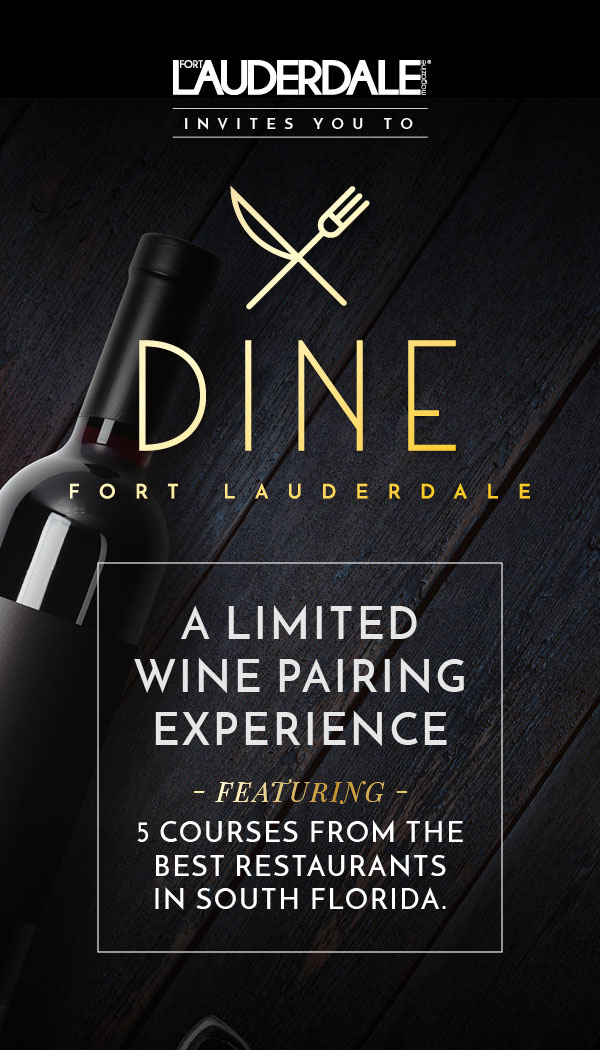The Reality
You might know Memphis Garrett from TV, but he spends his days thinking about what food and drink concepts need to come next to Fort Lauderdale
Memphis Garrett is used to the spotlight. For 15 years he’s opened and run restaurants, bars and nightclubs including massive L.A. clubs and a handful of South Florida places. If his face looks familiar, that’s because he’s also a reality television personality. The Big Brother 10 runner-up and Big Brother 22 houseguest publicly revealed last December that he’s now dating fellow BB contestant Christmas Abbott.
But hospitality remains the main gig, and Garrett’s new Fort Lauderdale venture will not be his first rodeo.
“This next venue will be number 40 for me,” he says of a “ghost kitchen” and craft cocktail bar opening in the space that had housed his Fort Lauderdale poke restaurant.
“For me, it’s in my blood to bring new concepts to life. The way that we dine, the way that we eat, the way that we serve food, it evolves constantly.”
In many ways, Garrett sees the past 15 months as hastening changes that were coming to the hospitality industry.
“This was a speed-up of what was coming anyway,” he says, noting that customers were already downloading apps and looking for convenience, delivery and other experiences. That plus rents that continue to skyrocket got him thinking.
He doesn’t think sit-in dining is going away. But people expect more of a total experience. A quick, casual, efficient but non-memorable trip to a café will be replaced more and more by delivery, but a destination restaurant or bar offering an experience – whether that’s live music, talented bartenders or simply a high-end “event” dining atmosphere – that can survive.
To that end, Garrett’s new venture is actually two – “ghost kitchen” Blue Wave Sushi and a craft cocktail bar, No Man’s Land, that will share space in the location formerly home to The Poke House, his Victoria Park café specializing in Hawaiian poke.
Garrett’s also behind JB&C Juice Bar, and he launched the Dalmar hotel’s rooftop bar Sparrow.
The Poke House had been open for about half a decade and even before COVID-19, Garrett saw a trend towards takeout and delivery and away from dining in. Blue Wave will keep some of The Poke House menu but do away with all front-of-house; in “ghost kitchen” fashion, it will be a delivery-only kitchen. The other side of the business will offer the sort of experience Garrett believes people will still leave their homes for – a big menu of drinks made by expert bartenders.

“I think we’re even more inclined and eager to get that experience (after COVID-19),” he says. “If we’re dining in, it’s like where do I get that service? I still want to be able to saddle up at a bar and talk to a bartender. Call me old fashioned, but my goal is to create a space with No Man’s Land where you sit down and forget your phone is in your pocket.”
The pair were scheduled to open last month, and Garrett’s bullish on the concepts.
He’s also bullish on where central Fort Lauderdale is going. (The former Poke House sits in some of the shops on Federal Highway, across from Flagler Village.) He signed The Poke House lease six years ago, thinking more about the future than the present. He saw plans approved by the city that would turn the area into even more of a densely populated, walkable area – and that’s what is happening.
And what of that other side of his life, the one where he occasionally pops up in gossip websites? After debuting on Big Brother more than a decade ago when he was in his mid-20s, Garrett went back on during the pandemic. “I kind of escaped it for a little bit,” he says.
He’s been used to being a “face” since his days running clubs in L.A., where a well-known personality could help a venue do well. “You have to be able to sell yourself in that regard.”
That said, if people don’t want to drink the drinks or eat the food, he knows his personality or familiarity won’t matter.
“There’s an ego check when you open a lot of venues,” he says. “There’s always this mindset in my head of, it’s not about me, it’s the product.”
The Great Outdoors
One restaurant’s location became a big help during the pandemic – but the people behind it rely on more than their address.
For YOT Bar and Kitchen, the restaurant that sits in the sprawling Lauderdale Marine Center, one unusual selling point also made it uniquely suited to weathering COVID-19.
“Since we are a mainly outdoor restaurant, it hasn’t really turned people away; they are confortable there,” says YOT’s Kristen Pinard, who estimates that 90 percent of the restaurant’s seating is outside. The restaurant’s most recent addition, an on-the-dock “floating bar,” takes advantage of those unique vibes even more.
The recently opened bar is also a good example of the sorts of changes restaurants have had to make in the past 15 months. They’d first intended to open the bar in March 2020.
“That was the big buzz, that bar,” Pinard says. Then the world changed, sitting at bars became temporarily verboten and the floating bar was temporarily put on ice. Likewise, patron boat dockage was for a time not a thing because of Lauderdale Marine Center’s COVID-19 policy. (Boaters can now dock there; they just have to register first with the marine center.)
Gradually though, the place added events and weeknight specials. And they’ve found themselves busy.
They’re also an interesting link between Fort Lauderdale’s yachting and boating industry and the rest of the community. Lauderdale Marine Center is noticeable – it’s the sprawling place on the south fork of the New River just east of I-95 – but if you’re not in the industry or a yacht owner, you normally wouldn’t have much need to actually go there. YOT is essentially a restaurant bar in an industrial zone – but crucially, one with lots of cool, massive boats to look at.
Visible though it is, actually getting there means snaking through southwest Fort Lauderdale’s River Oaks neighborhood.
“We are a hidden gem in Fort Lauderdale; it is hard to find, but I feel like that’s part of what people love the most,” Pinard says.

If YOT introduces non-yachties to a place and an industry they might not know, it’s also become a clubhouse for the yacht workers in LMC and elsewhere. Many bars and restaurants have “in the business” specials featuring nights with discounts for workers, but the business in question is usually hospitality. YOT’s in-the-biz Monday night targets hospitality workers and yacht industry workers.
“Originally it was going to be called Maritime Monday,” Pinard says. “We have so many yachties who live on the boats who are right there. They hop off and want a drink. But we also have people who want to see what the yachts are like.”
Prior to COVID-19, LMC would have its monthly crew party. Anybody who works there could come. “It was really awesome to bring everybody together,” Pinard says. “Lauderdale Marine Center is so big; at the beginning, people would come in who didn’t know we were there.”
More and more, people are getting to know YOT is there. And Pinard says that while they understand their unique location – sit outside, check out the big yachts – is a selling point in addition to an asset during COVID-19, it alone won’t keep people coming back. Their motto, she says, is SFL – Service, Food, Location.
“Those are the things we prioritize,” she says. “In that order.”
The Old-School Heroes
Just because a restaurant (and the family name behind it) is synonymous with old-school Lauderdale doesn’t mean they can’t reinvent the game.
For Old School Hospitality, the local company mainly known for its Quarterdeck restaurants, the pandemic happened right at the moment when some new looks and concepts were being introduced. A new Quarterdeck was built near the old one off 17th Street, and it had a wow factor – a modern two-story building with nods to Mid-Century Modern that opened up onto a large courtyard. On the other side of the courtyard; Whiskey Neat, a new whiskey bar that Old School bosses believe will be a big part of their plans moving forward.
That said, the longtime restaurant professionals behind the company have spent the past several months observing.

“We are making all of our future plans contingent on how the reopening plays out,” says Old School’s James Flanigan.
The new Quarterdeck’s focus on outside dining worked even better when that suddenly became what everybody was looking for.
“We were pretty prepared to go into the pandemic because now everyone is pushing for an outdoor dining experience,” he says. But it’s not a trend that ends as people get vaccines. As they look for new locations, they’re focusing on places where that layout – large courtyard, good for live music and lots of dining – can be duplicated. They’re also looking to add that in other existing locations.
“Over the coming year, we’re really going to maximize the outside dining experience at some of our stores that could use outside dining,” Flanigan says.
It’s part of an evolution years in the making. James’ father, Paul Flanigan, remains involved with the business today that he took on after starting out working in restaurants for Flanigan Enterprises. (Yes, these Flanigans are members of the family that gives us the legendary big green cups.) “I was quite literally born into the restaurant industry,” James Flanigan says. “I’ve been viewing the transition of Quarterdeck from sports bar into neighborhood restaurant.”

The Quarterdeck brand is one with four decades of history in Fort Lauderdale and South Florida – but, James Flanigan says, they’ve also been willing to change and adapt. Take sushi.
“We were at the forefront of offering sushi, particularly at what was then a neighborhood sports bar and grill,” he says. “As the new demands for new services come up, I think we’re going to meet them.”
Increasingly, he says, that means a full experience. Entertainment. Cocktails. A diverse menu. Beyond sushi, they’d been bumping up all of those things at Quarterdeck for years. The 17th Street location, he says, was really where it all came together.
“The 17th Street location is kind of the pinnacle of all those efforts,” Flanigan says. “Going forward, all our Quarterdecks will be modeled after that new 17th Street location. It’s really what the community wanted. That’s just an organic progression.”
Whiskey Neat is also a part of that organic progression. Flanigan describes the 17th Street Quarterdeck as having a symbiotic relationship to the upscale cocktail lounge with which it shares an outdoor space. Whiskey Neat can open at 5pm and not have a kitchen. Patrons can move seamlessly between the two, while each concentrates on what it’s best at.
“It allows Whiskey Neat to be as good as it is,” Flanigan says.
The next Old School project is happening in the rapidly developing area around Sawgrass Mills and the BB&T Center, where the City of Sunrise is promoting plans to turn the sprawling suburb into a walkable western downtown. The new project will look a lot like the 17th Street location – restaurant and bar, good menus and experiences. However, this special location will include an extension in the outdoor bar area connected to a Whiskey Neat cocktail lounge. Beyond that, Flanigan sees the company looking north for expansion opportunities.
“We’re still very bullish,” he says, “on the bar and restaurant industry.”
The Re-inventers
When the pandemic handed the Even Keel team lemons, they drizzled it on their fish.
When Even Keel Fish and Oyster opened about two-and-a-half years ago, it was noticeable – not least because of its large, prominent location on Federal Highway just south of Commercial Boulevard.
It’s the kind of big space in a high-rent area that can be unforgiving to new restaurants even in good times – and then the pandemic hit. But when it became apparent that the numbers just weren’t working, Even Keel didn’t become a pandemic restaurant victim. It became something new.
The team behind the restaurant left their Federal Highway location for a smaller one on another main road near Commercial and A1A. Even Keel now operates as a smaller, more casual “fish shack” in Lauderdale-By-The-Sea – and business, chef and co-owner David MacLennan says, is good.

“It wasn’t viable; it wasn’t a sustainable thing,” he says of the old location, which is now home to growing sushi brand Phat Boy. “It was still very dear to our hearts but the timing wasn’t right.”
For the new place, they went with a pared-down version of the same menu, focusing as they had before on fresh seafood – the raw bar, lobster roll, ceviche, poke, stone crab in season, etc. If anything, he says, it’s easier to execute. And it’s paid off.
“We’re in almost a better situation than we were originally,” MacLennan says. “Lauderdale-By-The-Sea is such a growing area. It’s a heavily trafficked area. It only seems to be getting better.
“We’re definitely pleasantly surprised with that; it’s very consistent. We’re just trying to take it as it comes. I don’t really know what to expect; the world’s kind of upside down right now.”
But even with the uncertainty, they’re seeing this as a blueprint that can be duplicated elsewhere. “We’re always hoping for growth,” he says. “We’ve got our hands full at the moment (but) our plan has always been to grow.”
The concept would be easy to clone – although, he admits, a bit more size in the kitchen wouldn’t be bad at a future location. “Perhaps a touch bigger,” MacLennan says. “We’ve learned through this whole thing that this size is really easy to manage.”






